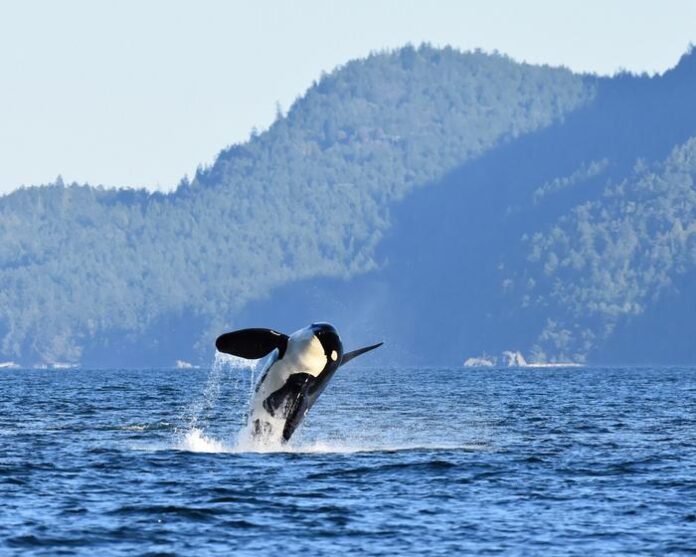New research shows endangered southern resident killer whales have reversed seasonal travel patterns, possibly because of climate change.
Monika Wieland Shields, Director of the Orca Behavior Institute, has studied killer whales in the Salish Sea since 2000. She noticed that since 2005, the endangered orcas have changed behaviour to be more abundant in fall and winter, while their spring and summer presence has declined dramatically.
She says the shift correlates with their preferred prey, Chinook salmon, which have also seen their migration patterns change in the last 20 years.
She says both BC and Washington State have implemented measures to protect the orcas, but they need to be more adaptable to reflect seasonal changes in orca behaviour.
Her research was published in the journal PeerJ Life & Environment.






